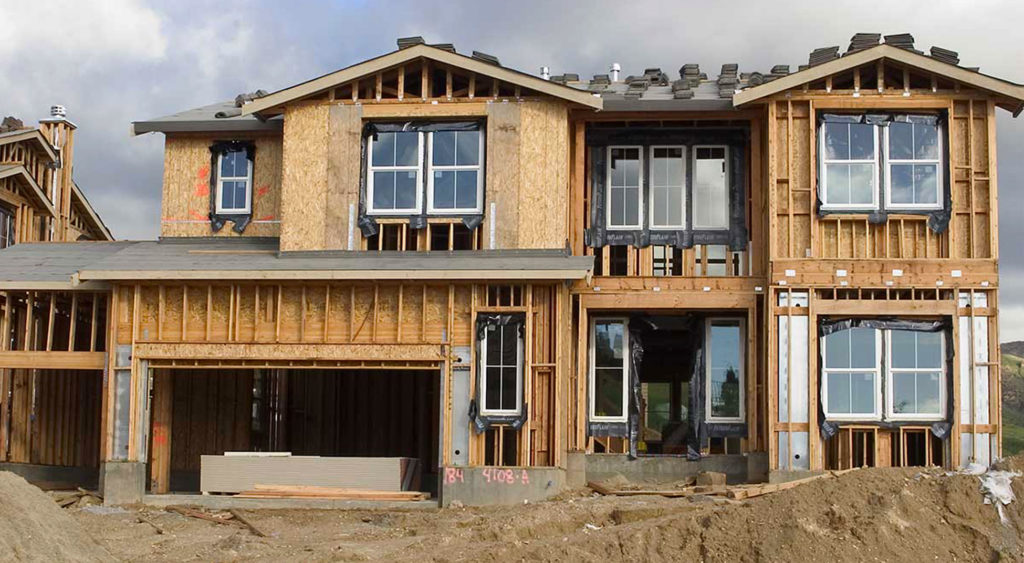
Strata Dispute Lawyers
Building defects in strata developments can be costly, time consuming and extremely stressful. As a builder or developer, these complications are something you don’t need – talk to us today.
———— 01. OVERVIEW
Building defects in strata developments can lead to significant costs, extended timelines, and immense stress – circumstances that any builder or developer would prefer to sidestep.
Defect claims can arise either during the developmental stage or after the completion of work.
At One Law, we specialise in helping builders and developers address these issues at an early stage. We’ve found that builders and developers often successfully defend against strata defect claims by relying on one of the following strategies:
- The builder argues they’re not liable for the defect in question as it wasn’t included in the original scope of work
- The builder contends that the work alleged to be defective is, in fact, up to standard
- The builder points out that there’s a time constraint for filing defect claims and that the Owners Corporation was too late in initiating their claim
By addressing these issues early and strategically, we aim to minimise the impact such claims have on your bottom line.
Get Help Now
———— 02. INFORMATION
Did You Know?
The Home Building Act regulates every residential development in NSW. The Act ensures that both the builder and the developer of the strata are liable for up to 6 years for any major defects in the building works.
A payment claim cannot be made under the SOPA (The Building and Construction Industry Security of Payment Act 1999 NSW – is a legislation which assists with cashflow for builders by providing a mechanism for quick dispute resolution regarding payment for ‘construction work’. The SOPA regime has strict timeframes.)
Once a payment claim has been submitted, the principal (or head contactor) has 10 business days to respond, unless the contract prescribes a shorter timeframe. The contractor can then recover this amount as a debt in Court. If the principal issues a payment schedule within time, but the contractor disagrees with the assessment, the claimant can make an ‘adjudication application’.
If you have any queries on the above or want to know what rights you have as a strata manager or home owner in a strata lot or a builder, developer or building practitioner facing a claim by a strata scheme let the One Law experts help you.

———— 03. HOW WE CAN HELP
We help with all types of defect claims, including:
- Electrical issues
- Faulty or damaged window installation
- Fire safety issues
- Flooring problems
- Foundation and structural damage
- Insulation materials and cladding
- Plumbing faults
- Poor roofing materials
- Ventilation issues
- Wall cracks
- Waterproofing issues
- Weak foundations
- Electrical issues
- Faulty or damaged window installation
- Fire safety issues
- Flooring problems
- Foundation and structural damage
- Insulation materials and cladding
- Plumbing faults
- Poor roofing materials
- Ventilation issues
- Wall cracks
- Waterproofing issues
- Weak foundations
———— 04. RECENT WINS
Success Stories
$2.2m
Lorem sit Amet
Excepteur sint occaecat cupidatat non proident, sunt in culpa qui officia deserunt mollit anim id est nisi ut aliquip ex ea commodo consequat laborum.
$900k
Lorem sit Amet
Excepteur sint occaecat cupidatat non proident, sunt in culpa qui officia deserunt mollit anim id est nisi ut aliquip ex ea commodo consequat laborum.
———— 05. FAQ
Frequently Asked Questions
What’s the difference between a major and minor defect?
A major defect is a building defect to a major element that causes (or is likely to cause) either:
(d) The inability to occupy or use the building (or part of it) for its intended purpose
(e) The destruction of the building, or part of it, or
(f) A threat of collapse of the building, or part of it
A minor defect are smaller defects that can affect how a building looks or functions. But minor defects don’t compromise the integrity of the building structure.
How long after practical completion can a homeowner make a defect claim?
Under the Home Building Act 1989 (NSW), owners have:
- Two years to make a claim for compensation against a builder for minor defects
- Six years to make a claim against a builder for major defects
What is Practical Completion?
Practical Completion is when the builder completes the work outlined in the contract. This is except for any omissions or defects that don’t prevent a homeowner from using the home or renovations.
I’m a builder and a homeowner has made a claim against me. Can I defend it?
This is where one of our building and construction lawyers comes in to help builders.
We’ve found that there are many occasions where builders can defend defect claims. The defence tends to fall under one of the following categories:
1. The builder is not responsible for the defect as it wasn’t part of the Scope of Work
2. The builder doesn’t believe the work is defective, or
3. The homer brought the claim out of time.
If you’re a builder who needs help defending a claim by a homeowner, contact us for an obligation-free chat.
Do we need to go to Court?
Not at all. In fact, we work hard to get you an early settlement so that Court proceedings aren’t necessary. This means less stress for you. And it keeps your legal costs and the impact on your profitability to a minimum.
———— 06. WHAT OUR CLIENTS SAY
Our reputation for support, and our dedication to your success is the reason we continue to grow
———— 07. OUR TEAM
Your Building and Construction Law Specialists
At One Law, we understand that every case is different, and we take the time to get to know your situation. We are your local lawyers with access to resources in all states, so you know your case is in good hands no matter where you are in Australia. Meet our Business and Commercial Law Specialists
Do you need a Business or Commercial Lawyer?
Call us on our advice line 1800 663 529 or leave your details and we’ll call you.










